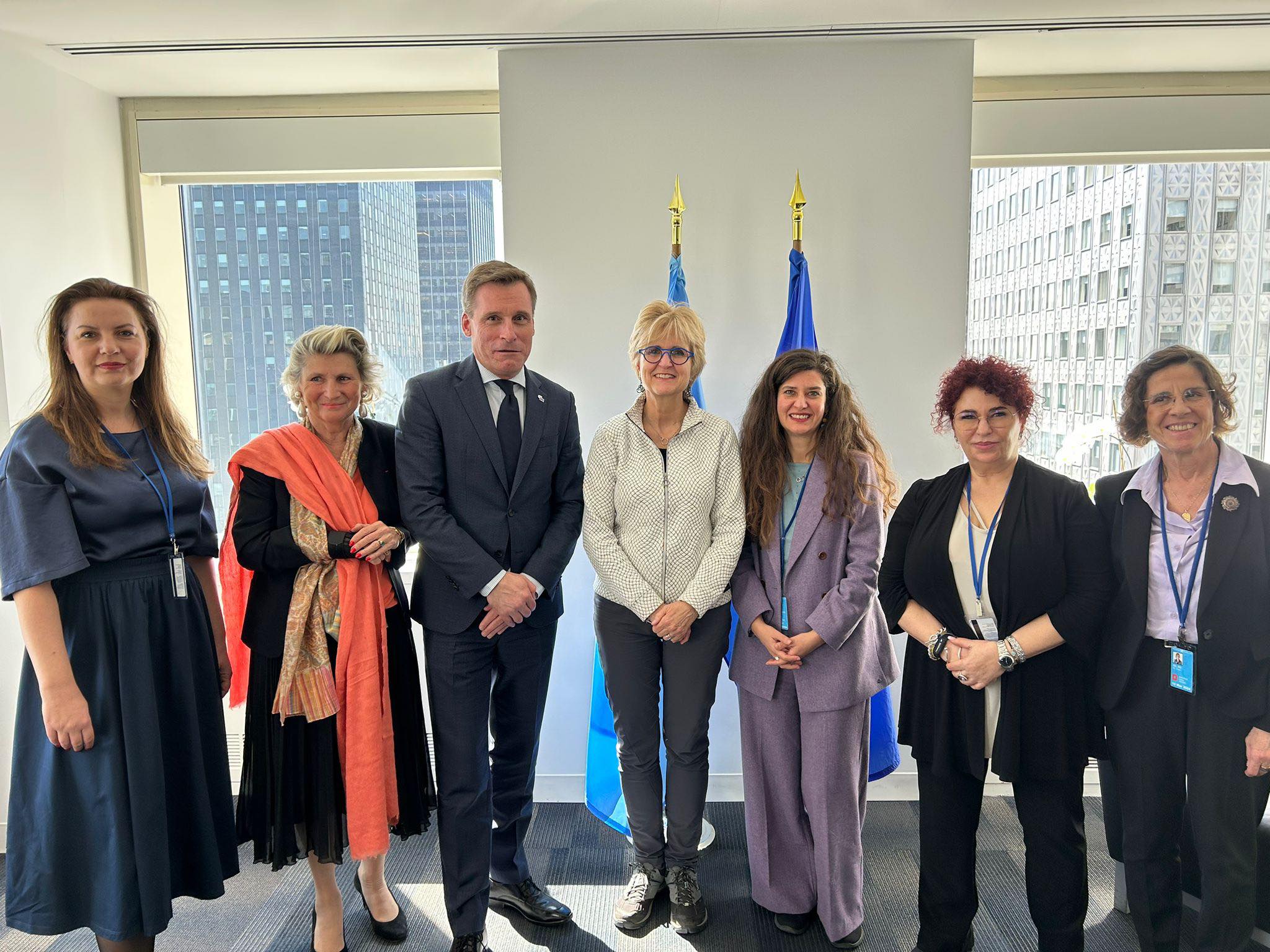BIA Vice-President Maria Mincheva is part of the 7-member delegation of the European Economic and Social Committee (EESC) for the 68th session of the UN Commission on the Status of Women (CSW68), which takes place from 13 to 16 March 2024 in New York (USA). The head of the delegation is Oliver Röpke, President of the EESC. In addition to Olivier Röpke, the EESC delegation includes: Christa Schweng, Mariya Mincheva, Cinzia del Río, Maria Nicolopoulou, Chiara Corazza and Sif Holst (President of the EESC's Equality Group).
The agenda of the forum provides ministerial roundtables on the priority topic, with a focus on mobilizing funding for gender equality, policies and strategies to end poverty among women and girls, good practices for strengthening institutions and achieving gender equality, social protection systems, access to public services and sustainable infrastructure for gender equality and empowerment of women and girls.
The visit will host a series of meetings: with the Commissioner for Equality, Ms Helena Dalli, and European NGOs; with Ms Carlien Scheele, Director of the European Institute for Gender Equality (EIGE), and Ms Marusha Gortnar, Head of EIGE's Research and Policy Support Unit; with the UN Special Representative on Sexual Violence in Conflicts, Pramila Patten; with UNICEF Deputy Director, Ms Kitty van der Heyden; with the Head of UN Public Partnerships for Women Ms. Caroline Rusten et al.
Several accompanying events are also planned:
- "Mobilization for ratification of the ILO Convention on Violence and Harassment (C190) on the eve of its five-year anniversary", organized by the Government of Mexico, the International Labour Organization and Human Rights Watch.
- An event dedicated to social protection systems, access to public services and sustainable infrastructure for gender equality and women's and girls' empowerment
In a declaration presented on 13 March this year, the EESC proposes 10 action points to promote gender equality, tackle poverty and strengthen gender institutions, in line with EU priorities. These action points include protecting women from all kinds of violence, tackling poverty through economic empowerment programmes, providing affordable health services and promoting sexual and reproductive health services. The EESC also stresses the importance of promoting the fair representation of women in the labour market and in senior positions in various sectors of activity.
In a press release, Oliver Röpke stressed the importance of the EESC's presence at CSW68, calling for a stronger voice on these crucial demands. He also encouraged constructive criticism from civil society, NGOs and institutions working together towards a common goal: "a more equal Europe, a more equal world".
In 2022, 95.3 million people in the EU were at risk of poverty or social exclusion – equivalent to 21.6% of the EU population. This risk is higher for women than for men (22.7% of women compared to 20.4% of men). According to the United Nations, one in 10 women worldwide lives in extreme poverty. It is estimated that 342.4 million women and girls will not be out of extreme poverty by 2030 unless we change current trends. An additional $360 billion is needed to achieve the UN Sustainable Development Goals in the gender and women's empowerment section.






